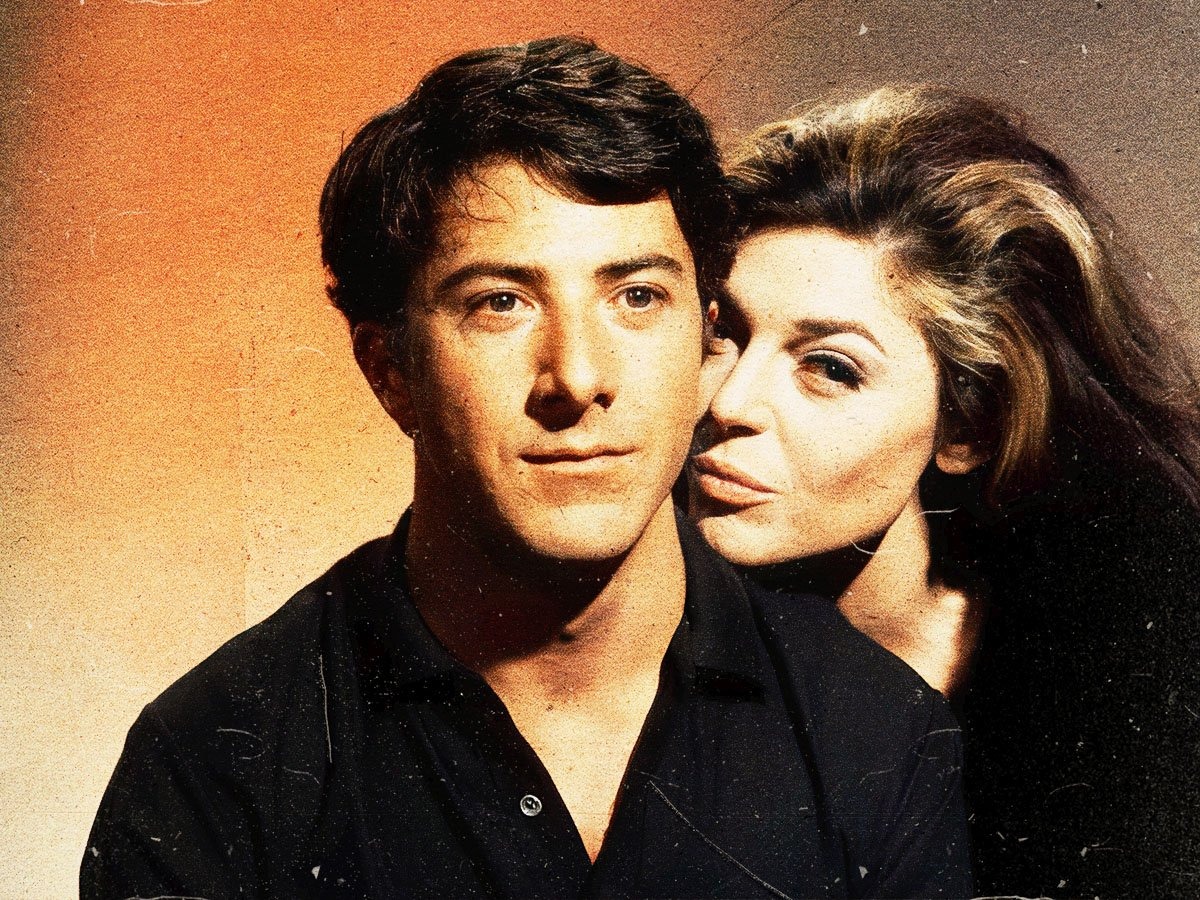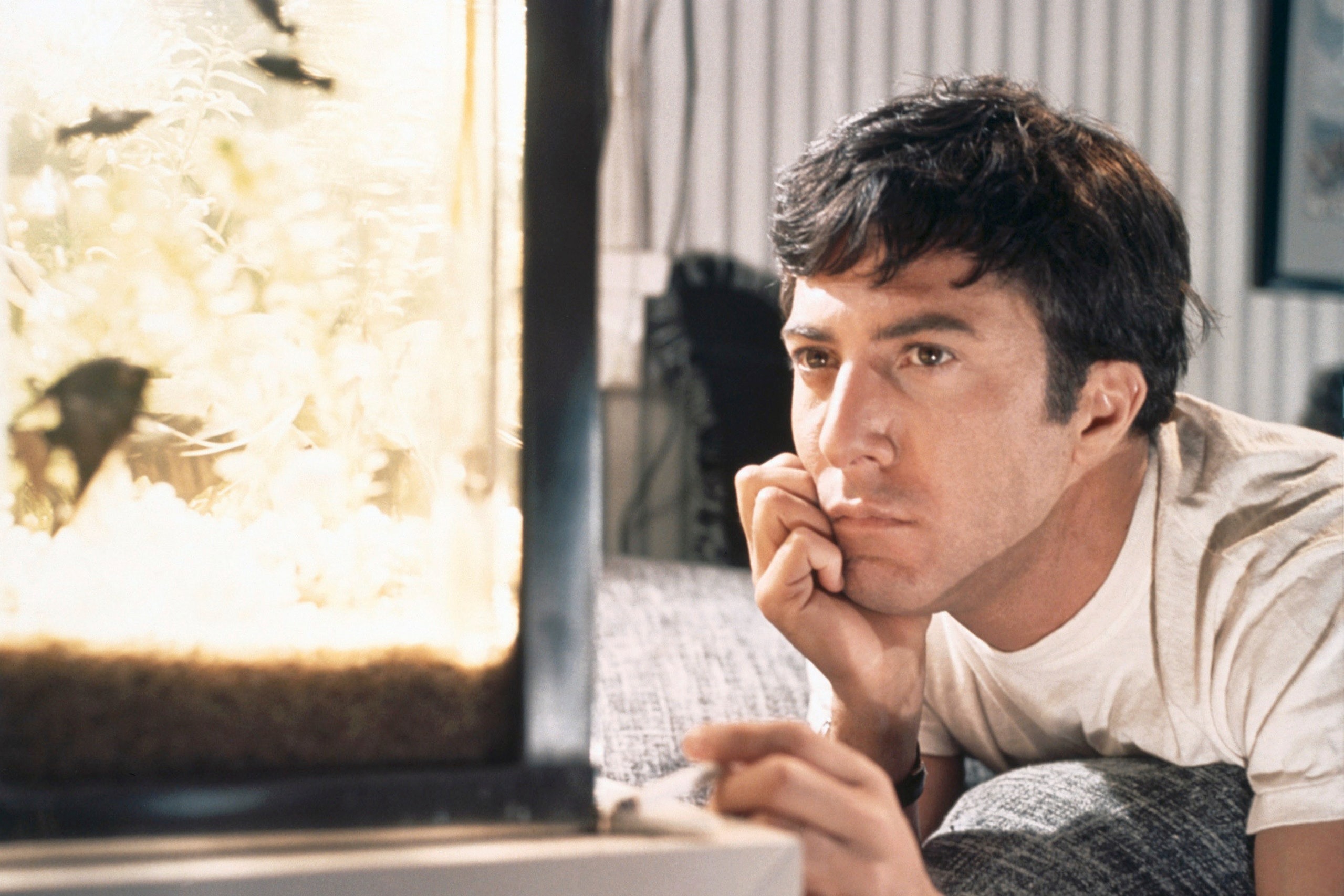Mike Nichols’ film The Graduate, based on Charles Webb’s novel, has carved a lasting legacy in the film industry due to its innovative themes and thought-provoking conclusion.
The story centers on Benjamin Braddock, a college graduate portrayed by Dustin Hoffman, who becomes entangled in a controversial affair with the older Mrs. Robinson, played by Anne Bancroft.

His life takes an unexpected turn when he falls in love with her daughter, Elaine, portrayed by Katharine Ross. By subverting conventional romantic tropes, the movie secured seven Academy Award nominations, including Best Picture, with Nichols winning Best Director.
A Cultural Touchstone and Its Lasting Impact
The Graduate’s influence reaches beyond its initial release, with its iconic final scene inspiring parodies in pop culture staples such as The Simpsons and Wayne’s World 2.
The film departs from the standard romantic resolution, leaving audiences with a lingering shot of Ben and Elaine’s uneasy expressions as they contemplate their uncertain future.
This groundbreaking conclusion, paired with other avant-garde elements, solidified its place alongside influential films like Easy Rider and Bonnie and Clyde, heralding the emergence of the New Hollywood era.
Dissecting the Climactic Ending
As Elaine faces mounting pressure from her father to marry Carl Smith, Ben takes daring measures to stop the wedding. Despite Mrs. Robinson’s strong opposition—fueled by the fallout of their affair—Ben remains determined. Racing to the church in Santa Barbara, he arrives just in time to disrupt the ceremony.
In a dramatic turn, Ben professes his love for Elaine, who reciprocates by fleeing the church with him. Their escape is punctuated by Ben using a large cross to barricade the guests.
While they initially revel in their freedom aboard a bus, their joy soon fades into uncertainty, symbolizing the ambiguous nature of their future.
Mrs. Robinson’s Objections
Mrs. Robinson’s resistance to Ben and Elaine’s relationship is layered with complexity. Her disapproval may stem from his moral failings during their affair or jealousy over his affection for Elaine. Additionally, she may resent Ben for the collapse of her marriage, which left her to bear the consequences alone.
Her opposition might also be tied to her own past, as Elaine represents a reminder of her youthful mistakes. Mrs. Robinson’s life was reshaped after a pregnancy led her to marry Elaine’s father, a decision that has haunted her ever since. This dynamic deepens the tension between mother and daughter, complicating the narrative further.
The Profound Implications of the Closing Scene
The final moments of The Graduate deviate from conventional storytelling. As Ben and Elaine sit quietly on the bus, their initial thrill gives way to a contemplative silence, underscored by Simon & Garfunkel’s haunting The Sound of Silence.
Though they escape immediate hurdles, their expressions hint at unresolved challenges and the fragility of their bond. By refusing to offer a definitive conclusion, the film leaves viewers pondering the uncertainties that often accompany relationships and life’s decisions.
Revisiting the Story: Life After the Bus Ride
In 2007, Charles Webb extended the narrative with Home School, set a decade after the events of The Graduate. This sequel explores Ben and Elaine’s married life in Westchester as they proceed parenting and their choice to homeschool their children. Their struggles echo the themes of disillusionment introduced in the original story.
While Home School answers lingering questions about the couple’s future, it did not achieve the acclaim of its predecessor. Inspired by Webb’s personal experiences, the novel expands on the critiques of societal norms, continuing the conversation sparked by The Graduate nearly 40 years earlier.



